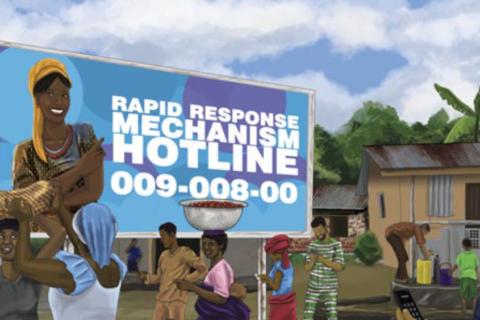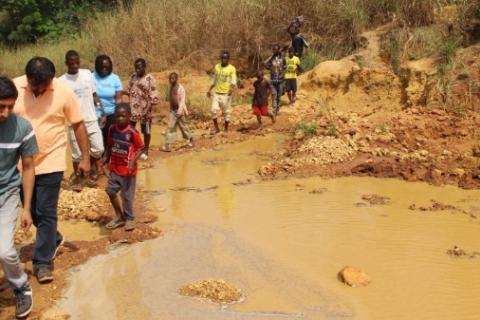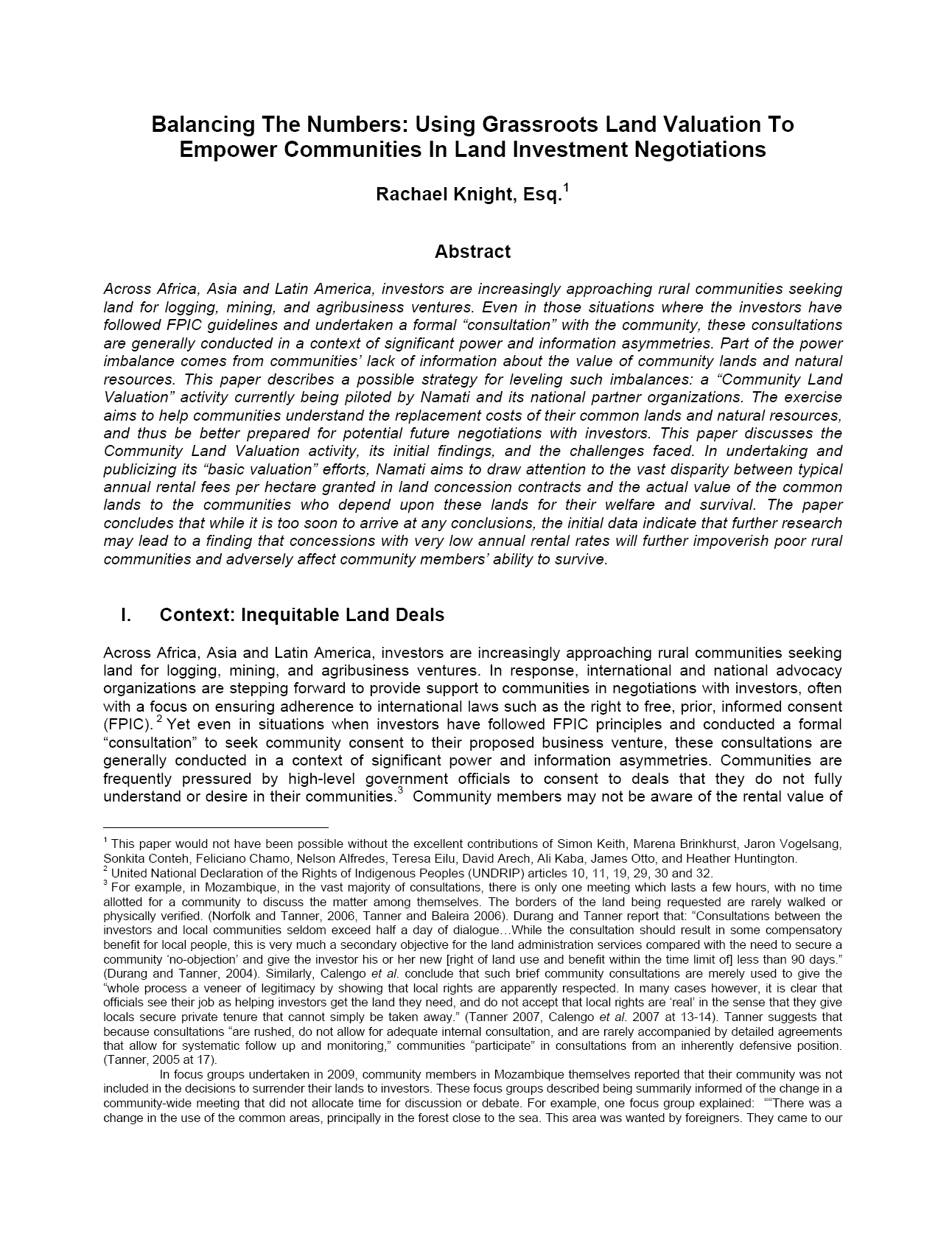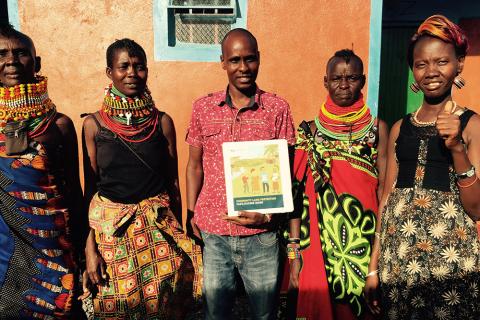Rachael Knight is an attorney with expertise in the areas of land tenure security, access to justice, and legal empowerment of the poor. She previously served as Director of the International Development Law Organization’s (IDLO) Community Land Titling Initiative, working to document and protect the customary land rights of indigenous groups in Uganda, Liberia and Mozambique. Rachael also worked as a consultant for the Food and Agriculture Organization of the United Nations (FAO) from 2004 until 2009. From 2002 until 2007, she founded and ran medical-legal partnership programs in Northern California that located legal services in primary care medical clinics to increase access to justice for low-income urban communities. Rachael recently completed a book for the FAO entitled Statutory Recognition of Customary Land Rights in Africa. She was awarded a Fulbright Fellowship, and is a graduate of Brown University and the UC Berkeley School of Law (Boalt Hall).
Currently, she is the Director at the Community Land Protection Program at Namati.
Selected Publications:
For Responsible Mapping of Community Land, Create Accountable Land Governance
Namati’s Rachael Knight argues that “providing a poorly governed, disempowered community with documentation for its land rights without ensuring intra-community mechanisms to hold leaders accountable… More »
Justice Initiatives: Legal Empowerment
The latest edition of Justice Initiatives explores the nature of legal empowerment and its impact in various forms. With an introduction by George Soros, the book includes… More »
Community Guide to Getting a Fair Deal from Companies and Investors
In September 2013, Namati and the Sustainable Development Institute released the “Community Guide to Getting a Fair Deal from Companies and Investors.” This is a “How… More »
Community Guide to Protecting Lands and Resources
In August 2013, Namati and the Sustainable Development Institute released the “Community Guide to Protecting Lands and Resources.” The new guide is designed specifically for… More »
Drafting By-laws for Community Land and Natural Resource Management: Leveraging community land documentation processes to strengthen local governance and equity
Community Land Protection Director Rachael Knight’s presentation on drafting by-laws for community land and natural resource management. Originally presented at The World Bank Land and… More »
Protecting Community Lands and Resources: Evidence from Uganda (Executive Summary)
In northern Uganda, common grazing lands are central to village life. While nominally used for grazing livestock, communities also depend on their grazing lands to… More »
Protecting Community Lands and Resources: Evidence from Liberia (Executive Summary)
In recent years, governments across Africa, Asia and Latin America have been granting vast land concessions to foreign investors for agro-industrial enterprises and resource extraction.… More »
Protecting Community Lands and Resources: Evidence from Uganda
In northern Uganda, common grazing lands are central to village life. While nominally used for grazing livestock, communities also depend on their grazing lands to… More »
Protecting Community Lands and Resources: Evidence from Liberia
In recent years, governments across Africa, Asia and Latin America have been granting vast land concessions to foreign investors for agro-industrial enterprises and resource extraction.… More »
Protecting Community Lands and Resources: Evidence from Liberia, Mozambique and Uganda
In recent years, governments across Africa, Asia and Latin America have been granting vast land concessions to foreign and domestic investors for agro-industrial enterprises and… More »
Camponeses’ Realities: Their Experiences and Perceptions of the 1997 Land Law
Rural Communities have their own sets of laws rooted in their particular culture, environment, traditions and history that are separate from national laws. Lack of… More »
Statutory recognition of customary land rights in Africa: An investigation into best practices for law making and implementation
Recognizing and protecting customary land rights is a critical component of protecting and defending the land rights of the rural poor. This study is founded… More »
Compulsory acquisition of land and compensation
This guide on Compulsory Purchase and Compensation is written for people who work in land administration and all those with an interest in land, land… More »
Land policy developments and setbacks in southern Africa
Chapter in Towards a New Sustainable Land Relations Policy
This book constitutes Volume I of a set of two Volumes. Volume I attempts a holistic… More »
The Community Land Titling Initiative: An Investigation into the Protection of Customary Land Claims
The Community Land Titling Initiative was designed to investigate how to best support communities to follow existing national laws that allow communities to document and… More »
Details
Affiliation:
Location
Contributions
Displaying 1 - 5 of 5Rapid response mechanisms: proactive legal support for communities
Rapid response mechanisms (RRMs) are a new, proactive legal approach designed to provide legal and technical support to communities facing nascent conflicts related to land-based investments. RRMs provide preventative rather than reactive legal help the moment a conflict arises or community members’ rights are threatened, rather than trying to reverse rights violations once they have already occurred.
Webinar: Working with Communities for Environmental Justice
Dear Friends,
Something special happened in Sierra Leone last month. Twenty-one dynamo legal empowerment advocates from nine countries came together to compare notes about the struggle for environmental justice.
Balancing The Numbers: Using Grassroots Land Valuation To Empower Communities In Land Investment Negotiations
Across Africa, Asia and Latin America, investors are increasingly approaching rural communities seeking land for logging, mining, and agribusiness ventures. Even in those situations where the investors have followed FPIC guidelines and undertaken a formal “consultation” with the community, these consultations are generally conducted in a context of significant power and information asymmetries. Part of the power imbalance comes from communities’ lack of information about the value of community lands and natural resources.







